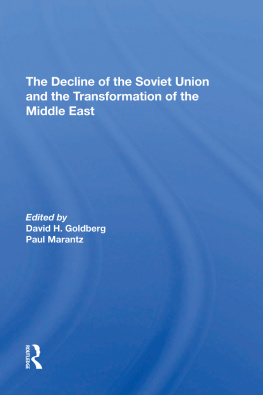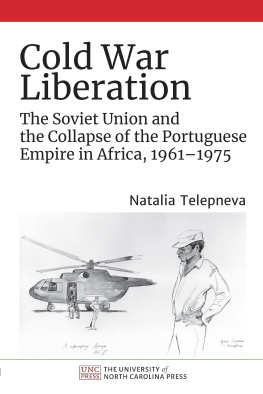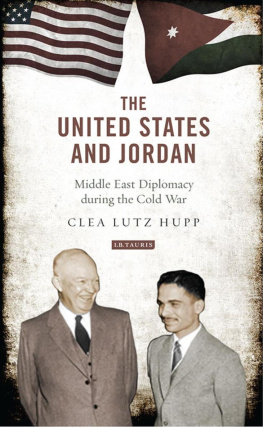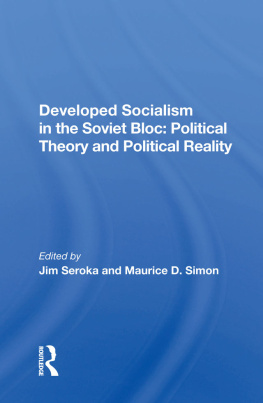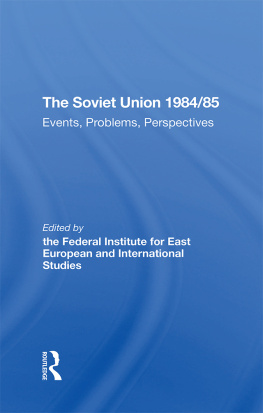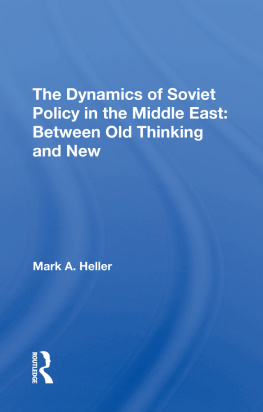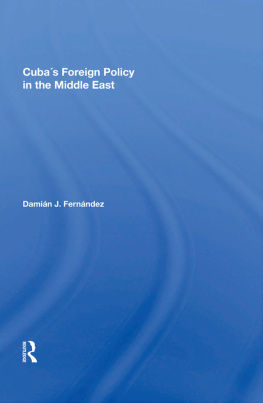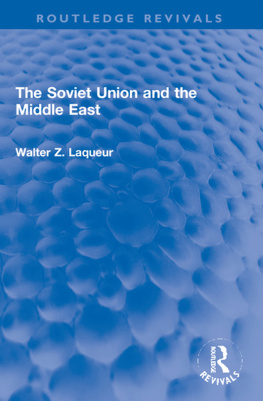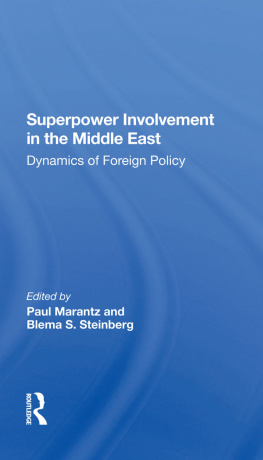First published 1994 by Westview Press
Published 2019 by Routledge
52 Vanderbilt Avenue, New York, NY 10017
2 Park Square, Milton Park, Abingdon, Oxon OX14 4RN
Routledge is an imprint of the Taylor & Francis Group, an informa business
Copyright 1994 by Taylor & Francis
All rights reserved. No part of this book may be reprinted or reproduced or utilised in any form or by any electronic, mechanical, or other means, now known or hereafter invented, including photocopying and recording, or in any information storage or retrieval system, without permission in writing from the publishers.
Notice:
Product or corporate names may be trademarks or registered trademarks, and are used only for identification and explanation without intent to infringe.
Library of Congress Cataloging-in-Publication Data
Goldberg, David Howard.
The decline of the Soviet Union and the transformation of the
Middle East / David H. Goldberg and Paul Marantz.
p. cm.
Includes index.
ISBN 0-8133-8652-7
1. Soviet UnionForeign relationsMiddle East. 2. Middle East
Foreign relationsSoviet Union. 3. Former Soviet republics
Foreign relationsMiddle East. 4. Middle EastForeign relations
Former Soviet republics. I. Marantz, Paul. II. Title.
DK68.5.G65 1994
327.47056dc20 93-47322
CIP
ISBN 13: 978-0-367-29118-1 (hbk)
Paul Marantz
First in 1989, and then in 1993, the walls came tumbling down, and international politics were transformed. In November 1989, the Berlin Wall was breached, symbolizing and accelerating the collapse of Communism throughout Eastern Europe and eventually in the Soviet Union as well. In September 1993, the walls of non-recognition and non-cooperation that had long separated Israel and the Palestine Liberation Organization (P.L.O.) were torn down as Prime Minister Yitzhak Rabin and P.L.O. Chairman Yasser Arafat signed historic documents aimed at moderating their enmity and constructing new, cooperative arrangements. Although these two events were separated by four long years and took place in different parts of the world, there was a strong causal link between them: The decline of Soviet power was an important factor promoting the transformation of the Middle East.
The momentous changes that took place within the Soviet Union and Eastern Europe in the late 1980s and early 1990s produced a geopolitical earthquake of immense proportions in the Middle East. The resulting aftershocks will continue to transform the landscape of the region for many years to come.
Following Gorbachev's assumption of power in March 1985, Soviet foreign policy went through three major stages: reconceptualization, decline, and disintegration. Between 1985 and 1988, Gorbachev's "new thinking" produced a searching re-examination of Moscow's approach to regional conflict and its Cold War rivalry with the United States. In 1989-1990, the Soviet Union's international power declined as domestic political and economic crises ate away at the foundations of Moscow's international power. In December 1991, the Soviet Union ceased to exist, and fifteen" new sovereign states emerged in its place. This book examines the impact of these changes on the Middle East and analyzes how the decline of the Soviet Union has provided the impetus for the continuing transformation of diplomatic alignments, domestic policies, and rivalries throughout the region.
The first part of the book discusses how the Soviet Union's changing foreign policy influenced developments in the Middle East. Carol Saivetz begins the volume with an overview of Gorbachev's policies toward the Arab world and an examination of how the legacies of the Soviet period will affect the evolution of Middle East politics. She argues that initially Soviet policy toward the Middle East was slow to embody the proclaimed principles of "new thinking." Gradually, however, Gorbachev transformed the Soviet approach toward Afghanistan, Egypt, the Palestine Liberation Organization, Iraq, Israel, and the conservative Arab Gulf states, thereby fundamentally altering the options of the key players in the Middle East.
Stephen Page provides an assessment of what "new thinking" meant in practice through two case studies that contrast Soviet policy in the Iran-Iraq war of 1980-1988 with Moscow's policy during the Persian Gulf crisis of 1990-1991. He points out that in both cases Moscow followed pragmatic policies that sought to maximize and balance its competing interests. Even as Moscow's power ebbed in 1990-1991, Gorbachev refused to abandon the Soviet Union's quest for influence and status or to renounce its role as a global superpower. However, the Soviet leadership did redefine its interests, rethink its understanding of the causes of regional conflict, cut back on its external commitments, and replace its previous unilateralism with a greater reliance upon the United Nations and multilateral cooperation.
Robert Freedman's chapter contains a detailed analysis of the transformation of Soviet policy toward Israel and the United States. Slowly and painfully, the Soviet Union rethought its approach to the politically charged issue of Jewish emigration and decided to disregard Arab protests against its growing economic and diplomatic ties with Israel. This reversal of past Soviet policy has provided a stable basis for Russia's strong links to Israel and for Israel's success in establishing diplomatic relations with the new states of Central Asia.
Robert Boardman examines one of the most important changes in Soviet foreign policy, the transformation of Moscow's approach to the United Nations. The Soviet Union abandoned its previous suspicion of the U.N. and became one of its strongest supporters. A new perception of self-interest was at the root of this change. As Soviet might declined, the Soviet Union sought to disguise this development by claiming that what was occurring was a strengthening of international institutions and legal norms rather than a decline in Soviet power. The Soviet leadership also hoped that a reinvigorated U.N. might prevent the United States from filling the power vacuum created by the Soviet Union's declining power. Under the leadership of Boris Yeltsin, Russian foreign policy has continued to provide strong support for the United Nations, even going so far as to call for the use of U.N. peacekeepers to dampen ethnic conflict on the territory of the former Soviet Union. Moscow's continuing support for a strengthened U.N. and for U.N. peacekeeping is one of the most positive legacies of the Soviet period.

